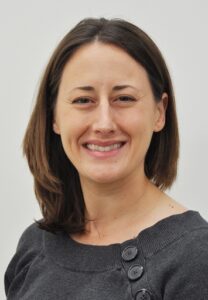Description

Sandra (Axiak) Bechtel is a Veterinary Medical Oncologist and Associate Professor at the University of Florida in Gainesville, FL. She graduated from Michigan State University’s College of Veterinary Medicine in 2004 followed by an internship at Mississippi State University and Medical Oncology residency at Gulf Coast Veterinary Specialists. She achieved board certification in Medical Oncology in 2008 and practiced as an Associate Oncologist at Veterinary Specialists of North Texas in Dallas and Assistant/Associate Professor at the University of Missouri prior to joining the University of Florida in 2017. She loves teaching veterinary students how to apply their didactic education to patient care and to understand the goals of cancer therapy in dogs and cats. Her research focuses on improving the lives of companion animals with naturally occurring cancer and providing translational models for research in cancer causation, progression, and treatment. Particular areas of
interest include novel diagnostics and treatments in cancer therapy and immune system dysfunction
and modulation in cancer. This focus provides advanced cancer treatment for companion animals and essential information for translation of novel treatments into people.
She has lectured and published extensively on her research in translational oncology. She relishes outdoor activities with her husband Scott and daughter Ainsley, and enjoys taking her boisterous Cavalier King Charles Spaniel, Watson for long walks.
Date – Sunday, August 27th, 2023
Time – 8:30 am – 4 pm
Location – The Danforth Center, 975 N Warson Rd, Olivette, MO 63132
Canine mast cell tumors – it’s complicated (1 hour)
This lecture will cover different local therapeutic options for canine mast cell tumors outside of traditional surgical excision, including localized immunotherapy, electrochemotherapy, and systemic palliative therapy. Interpretation of histopathology reports
and discussion of if/when staging or follow up treatment is indicated will also be discussed.
Canine osteosarcoma – it’s getting exciting! (1 hour)
Exciting new therapies are available and/or being studied for osteosarcoma. This lecture will briefly review the standard-of-care for canine osteosarcoma, then cover additional local therapies for pain control and discuss immunotherapies for improving prognosis.
Palliative care for osteosarcoma will also be discussed.
Canine and feline lymphoma – helpful updates in diagnosis and therapy (1 hour)
Diagnosis of lymphoma can be elusive in some cases, and this lecture hour will cover the advanced diagnostics available to you and how to interpret the results. In addition, we will discuss testing available that uses drug sensitivity in vivo with AI with the goal
of predicting drug response in canine lymphoma, recently approved new drugs to treat lymphoma, and old drugs used in new ways. Palliative care for lymphoma will also be discussed.
Cancer emergencies and how to treat them (1 hour)
It feels as if oncologic emergencies are increasing – and these emergencies may be caused by cancer progression or as a result of cancer treatment. In this hour, we will discuss the most common emergency presentations and various ways to manage them, both in
hospital and advice for clients at home.
Unexpected cancer cases and what to do about them (1 hour)
You ultrasound a dog due to elevated liver enzymes and find an incidental bladder mass; you ultrasound a dog’s bladder and find an incidental adrenal mass. You stage a cat with one cancer only to diagnose a second cancer. How can we best guide our clients
through the frustrating, expensive, and emotionally exhausting process of an unexpected cancer diagnosis in their pet? This lecture hour will cover cases and management guidelines, with client communication tips, for these unpleasant surprises.
How new diagnostics for cancer change your practice (1 hour)
Numerous new tests are available for blood, urine, cytologic samples, and tissues for the diagnosis/prognosis/treatment determination of cancer. But do these diagnostic tests hold value in practice? When should they be used and how do we interpret the results? What should our clients expect? In this hour, we will review and discuss these tests and how best to use them.
6 Hours CE credit for the day